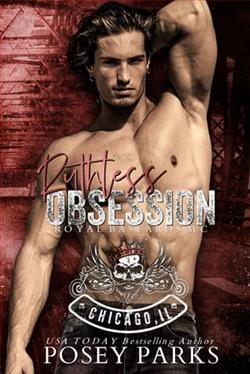Page 2 of Holmes, Margaret and Poe
He pulled into the nearly empty parking lot and found the stall he wanted. As darkness descended, the last visitors got in their cars and left. Davis called up a public link on the laptop.
Air traffic controllers began chattering to pilots.
Just then a roaring sound came from behind the van. From the north, a United Airlines jet crossed above the Fourteenth Street Bridge, Gravelly Point Park, Davis’s van, and a backwater of the Potomac and touched down at Ronald Reagan National Airport.
Davis thrilled at the vibration the passing jet’s engines sent through the van and his body. It had been less than two hundred feet above him! He knew this because he had been to the park multiple times over the past three years, purposely going months between visits to study landing patterns and approaches until he felt as if he could put a jet down on that runway himself.
The air traffic control chatter directed the next three planes to approach the airport at the same specific speeds and angles of descent. The wind, they said, was due south, barely eight knots, which made for smooth landings.
The next plane and the one after that came in on the same vectors. Davis fed this information into the laptop just before a police cruiser turned into the parking lot.
He’d anticipated a visit. A cruiser showed up every evening to make sure the parking lot was empty and gated off from vehicles. Davis leaned over and retrieved a sprayer from the floor of the passenger side. He tugged his respirator up so it covered the lower part of his face and got out with a headlamp on his head. The cruiser pulled up. The window rolled down.
“Late night?” the female officer asked.
“On overtime, Officer,” Davis said, lowering the mask a little. “They want this place sprayed with insecticide when no one is around.”
“You’re lucky it’s fairly warm and not raining.”
“I was kind of wishing for rain so I could go home and see my kids,” he said. He unzipped his coverall enough to show the Ravens logo on his hoodie. “Watch the game.”
“That’s right, Baltimore’s playing tonight. You have the key to the gate?”
Davis nodded. “I’ll shut and lock it when I leave.”
“Thanks,” the officer said. She rolled up the window and pulled away.
Davis made a show of leaving the parking lot and trudging down the bike path. The cruiser’s taillights disappeared. After a bicyclist passed him heading north, he buttonhooked back to the van, got in, and set the chemical sprayer on the floor. He listened to the next plane land on the same vectors and trajectories and checked to make sure his cell phone was connected to the laptop. Then he sent the computer a command from the phone. Behind him, he heard the gun swivel and adjust for elevation and windage based on the information he’d gleaned from the air traffic controllers.
“Delta nine-four-four, you are clear for landing,” a female controller on the laptop connection said. “American eight-three-nine, begin your approach.”
“Roger that, National,” both pilots said.
Davis got out fast, went around the back of the van, and opened the rear doors. Careful not to bump the barrel of the gun, he eased out the mountain bike, got on it, and pedaled away. By the time the Delta flight landed, Davis was out alongthe Potomac, listening to the air traffic controllers over his phone and earbuds.
He caught sight of the American jet’s landing lights far upriver and stopped the bike south of the Fourteenth Street Bridge. He could barely see the van back in the parking lot.
It didn’t matter, and neither did the men, women, and children on the plane. Davis thumbed the screen of his phone to see the feed from the scope.
American 839, arriving from Palm Beach International, was above and behind him over the bridge. The heat signature of the jet was just showing on the gun sight’s thermal feed.
Davis activated the firing program and waited for the mayhem to commence.
CHAPTER 3
FIFTEEN MINUTES EARLIER, DURINGa long, slow banked turn from west to north to east, American Airlines captain Harry Carpenter, a week from retirement, was talking barbecue, his third favorite subject after fly-fishing and college football.
“I’m telling you, the best I ever had was in Chicago,” he said to his new copilot, Emma Waters.
“Chicago?” she said. “What about Kansas City or Memphis or Dallas? I always thought those were the hotbeds of the good stuff.”
Carpenter chuckled. “Well, the real hotbeds were and are folks’ backyards down in the Carolinas somewhere and at cinder-block roadside joints in Mississippi and Alabama, the kind of place that serves you food on a paper plate with a cold can of beer or a Dr Pepper while you sit under the blades of a creaky old fan.”
Waters laughed. “Sounds like you’ve been there.”
“Many times,” he said. “My old man was a freak for good barbecue, used to drive us all over on the mere rumor of a great rib joint.”
“And you found it in Chicago?”















